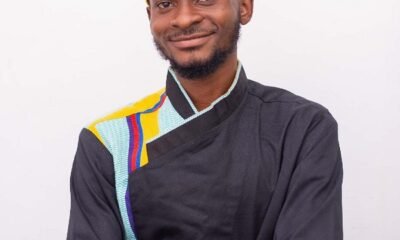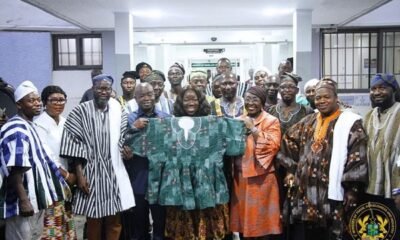Profile
Fiator Mordeku III of Awudome Tsito — The bridge builder in chieftaincy and architecture

Fiator Mordeku III of Tsito, known in private life as Kafui Kwame Amegbe, is a unique blend of tradition, service, and modern professionalism.
As a chief, an architect, and a community development advocate, he wears his many hats with humility, driven by a powerful dual motivation: a deep desire to serve and preserve his family’s legacy, and to play an active role in creating positive change in society.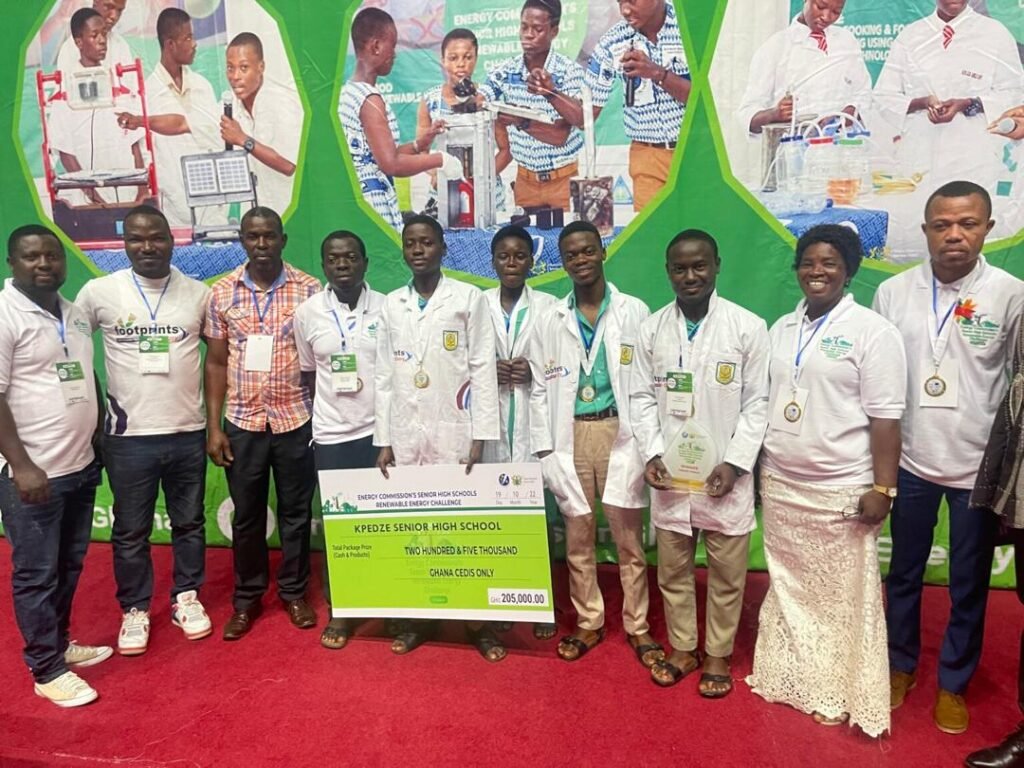
picture with winners of the Energy Commission
High School renewal energy challenge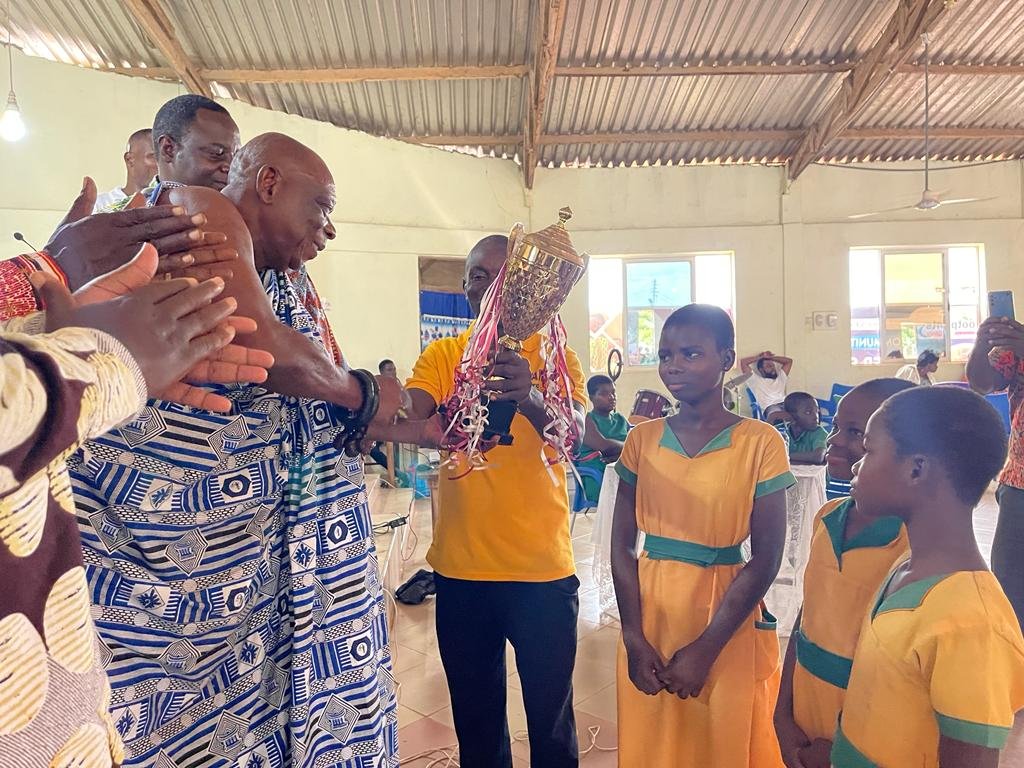
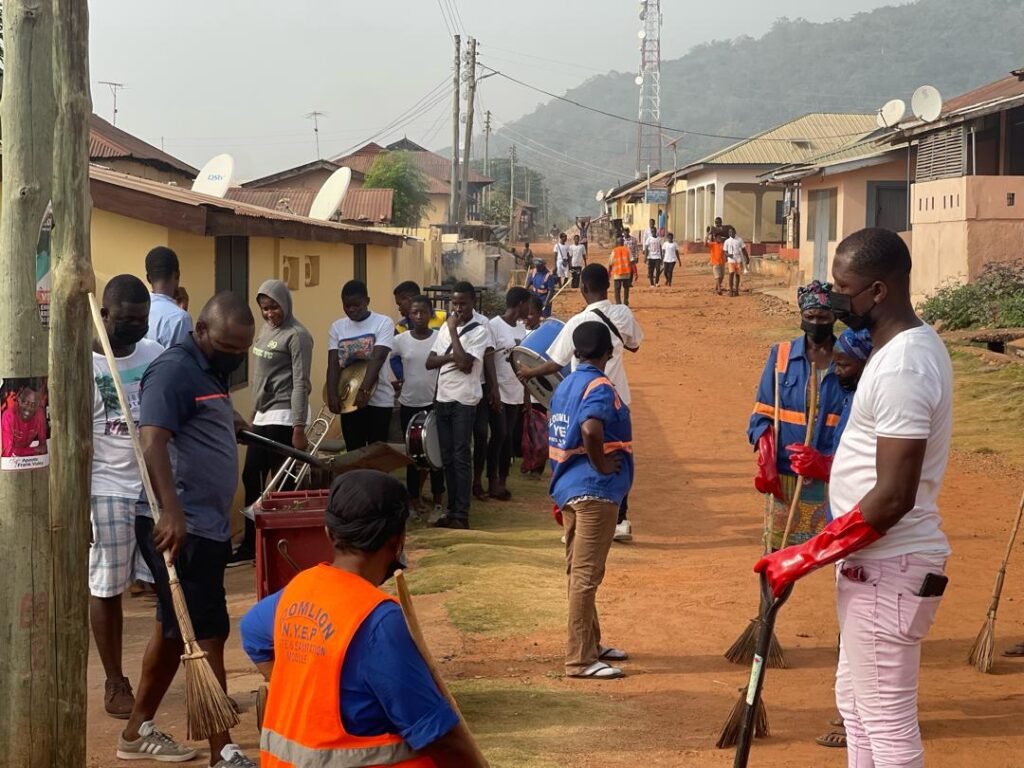
From a young age, Kafui’s life has been guided by strong values rooted in communal living.
Growing up in a close-knit family and community, he experienced firsthand the power of shared responsibility-where neighbours became second parents, and village elders doubled as life coaches.
Speaking to The Spectator in Accra on Saturday, Fiator Mordeku Ill said one childhood memory that continues to inspire him is when Togbe Gobo Dake XII, Chief of Tsito, bought him a slate for his first day in school.
Today, he serves as Fiator (father to Togbe Gobo Dake XII) to his childhood benefactor-a powerful circle of legacy and service.
“I was enstooled in my late 30s, so this journey is still quite fresh-just under two years in,” he said, by many standards that is considered quite young, especially given the weight and complexity of traditional leadership.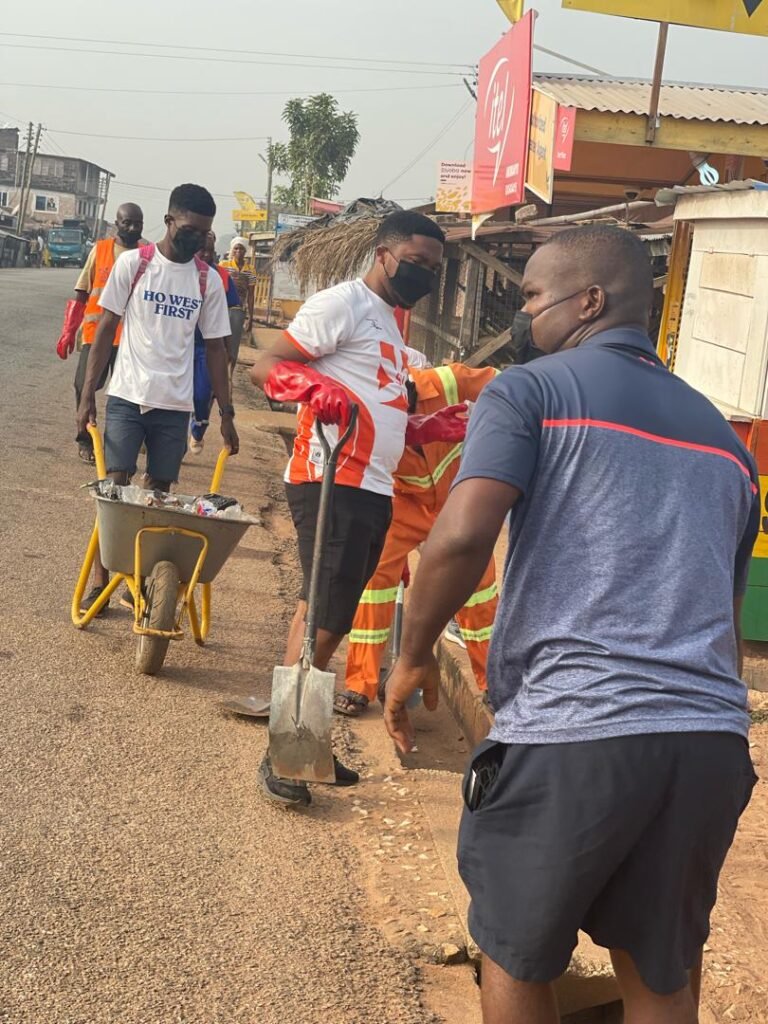
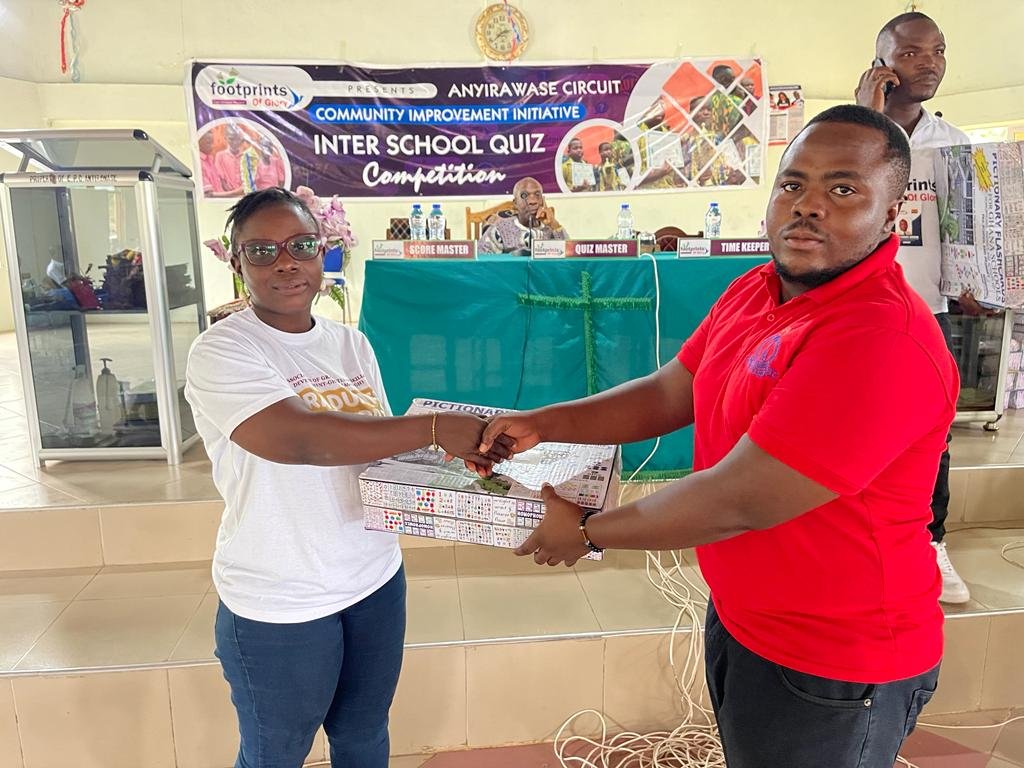

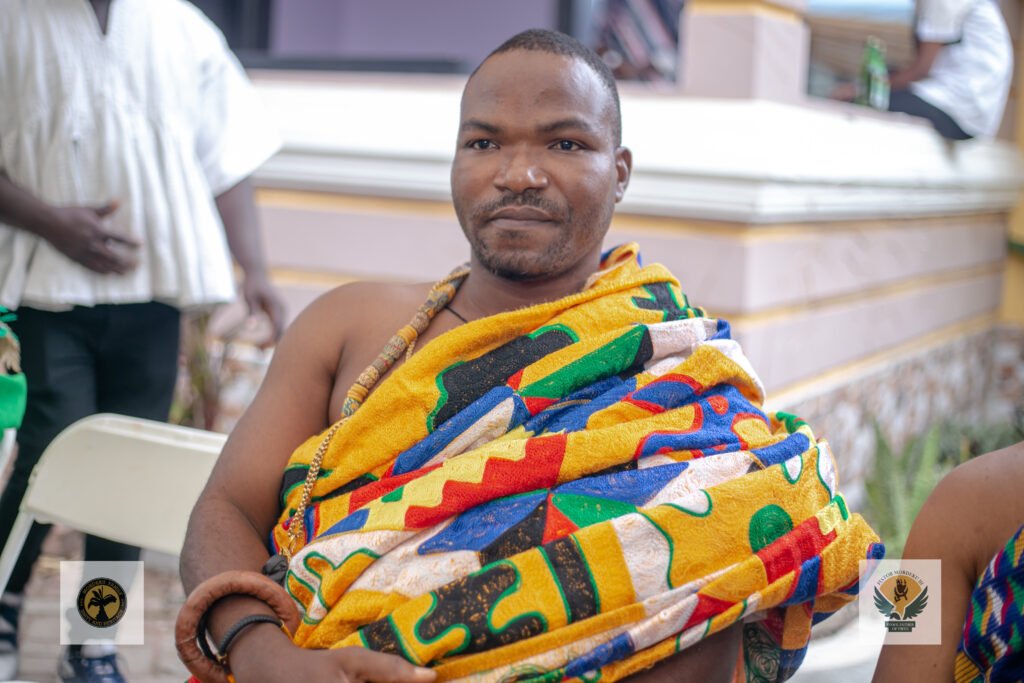
Tsito during his coronation
But I have always believed that leadership is not about how old you are; it is about preparation, mentorship, vision and most importantly, a desire to serve.
According to him, becoming a chief at a young age came with immense responsibility, saying “chieftaincy can be complex and sometimes misunderstood, but my family played a key role in preparing me.”
On the day of his enstoolment, he stood composed, not because it was easy, but because he was aware of the expectations ahead.
The reality, however, only sank in later-when the calls, community issues, and needs began pouring in. For him, leadership is not about titles but about providing proactive and adaptive leadership that reflects the needs of today’s fast-changing society.
Fiator’s reliability with the youth is a defining feature of his reign. “I am not far from the Gen Zs,” he says.
This closeness, according to him, enables him to connect with young people on a peer level, encouraging them to engage in community initiatives and understand the importance of preserving tradition. It is this connection that empowers him to blend traditional authority with modern innovation.
Outside of chieftaincy, Kafui is a passionate architect and advocate of sustainable design.
His love for designing spaces began as early as Junior Secondary School, and today, he continues to inspire with thoughtful architecture that focuses on sustainability, community needs, and the intelligent use of local materials.
To him, architecture is about how people interact with spaces, and one of his proudest contributions is his role in the design of the new Regional House of Chiefs projects across Ghana’s six new regions-a national undertaking that incorporated diverse stakeholder inputs.
His work as an architect and a chief converges in one of his most symbolic projects-a small concrete bridge he built behind his house.
It replaced a dangerous makeshift path used by locals, especially the elderly, to cross a storm drain.
“Now people walk across without fear. That one act of building a bridge, literally and symbolically, pushed me to think more deeply about the many quiet struggles people go through,” he said.
This bridge became the foundation for his greater calling – providing not just charity, but dignity and equity.
Through the Footprints of Glory Foundation, which he founded in 2020 and officially registered in 2021, Kafui has launched impactful initiatives across Tsito and the wider Awudome area.
From funding school fees and apprenticeships to constructing small community bridges and launching an online radio station (soon to become a full community station), the foundation has been a lifeline for many.
It is supported by respected individuals like Dr Yao-Foli Sekyema and Mr Michael Brefo. The foundation’s success lies in collaboration and shared purpose.
A touching example of his impact is the story of a young boy from a neighbouring village who, due to financial hardship, was working on farms despite being a top student. Fiator took him in, supported his education, and
today, the boy is university-bound-a story that encapsulates the spirit of his work.
“I don’t dwell much on legacy,” Fia
tor said. “My focus is on providing real, practical solutions that ease burdens and improve lives.”
Whether it’s mentoring architecture students, building community projects, or planning future academic pursuits.
Currently, he is studying for an MSc in Facilities Management with the aim of uplifting others through service, innovation, and collaboration.
He called on the youth to embrace discipline, humility and a deep willingness to keep learning, urging the youth not to be afraid of hard work or setbacks and that they were part of the journey.
“Find people who inspire you, ask questions, stay curious, and never forget your roots. Where you come from is your foundation, and it will keep you grounded no matter how far you go and we don’t have to wait until we are older to start serving.
He is married with three children and enjoys working out, playing lawn tennis, travelling, listening to music which he says helps him reflect, plan and recharge.
By Esinam Jemima Kuatsinu
Profile
From dormancy to dominance: Rev. Emmanuel D. Niikoi’s inspiring netball journey
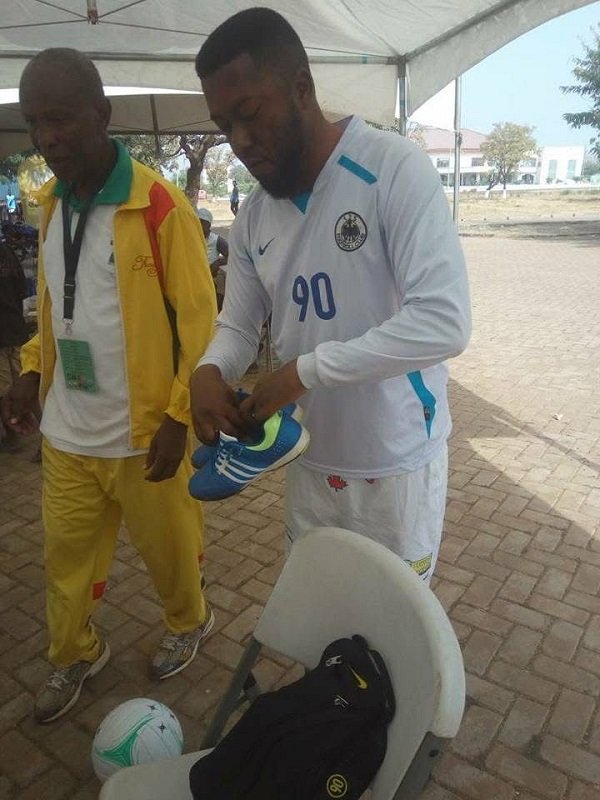
IN the annals of Ghana’s sporting history, certain individuals stand out not merely for participating in sport, but for transforming it.
Rev. Emmanuel D. Niikoi is one such figures. Revered as the father of modern netball in Ghana, is widely credited with rescuing the game from near extinction and transforming it into a vibrant, structured and nationally recognised sports discipline.
His journey reflects vision, resilience and an unwavering commitment to youth and sports development.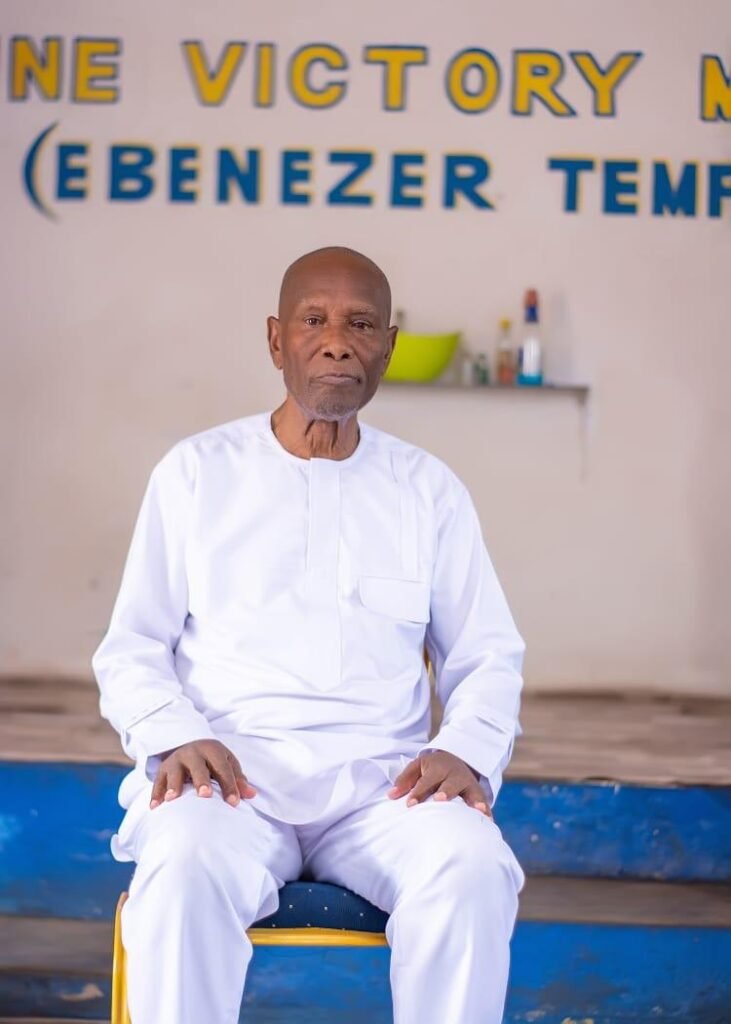
Netball was introduced to the then Gold Coast by Christian missionaries alongside formal education. By the 1960s and early 1970s, the sport had gained remarkable popularity in schools and colleges, ranking second only to football and, in some institutions, rivaling it in appeal.
However, during the 1974/75 academic year, the Ghana Education Service (GES) took a policy decision to step down netball in favour of basketball development. The decision dealt a severe blow to the sport.
Between 1975 and 1985, competitive netball virtually disappeared from Ghana’s sporting calendar.
That decision of the GES can be blamed for the current state of the sports that is producing heroines across the globe.
The revival of the game can be traced to 1985 during the Golden Jubilee celebration of the Ghana Broadcasting Corporation (GBC).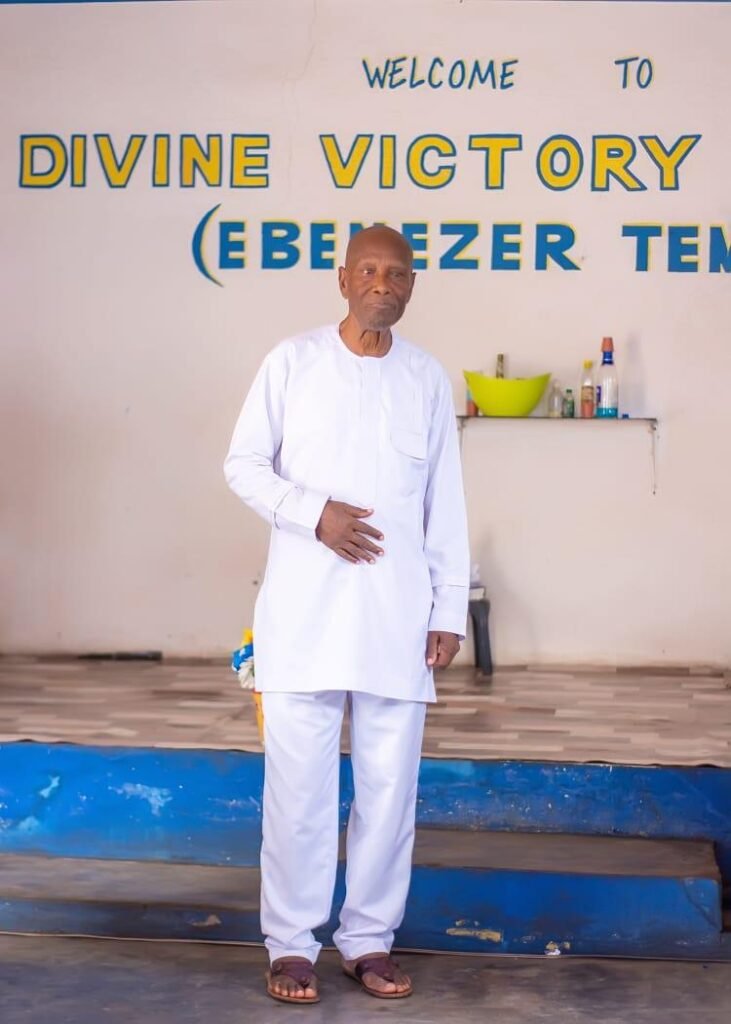
At the time, Rev. Niikoi was serving as Chief Editor (News) in the Radio Newsroom. Understanding both the historical importance and untapped potential of netball, he championed the inclusion of a netball tournament as part of the anniversary celebrations. The event reignited public interest and reminded many of the sport’s former glory.
Crucially, Rev. Niikoi did not allow the momentum to fade after the festivities. The GBC netball team formed for the tournament, aptly named “Golden Hands,” became the cornerstone of a national revival campaign.
With determination and personal sacrifice, he led tours across the country, using the team as a practical training platform.
He personally taught sports teachers under the GES the official rules of netball, reintroduced structured competition, and restored confidence in the sport’s viability.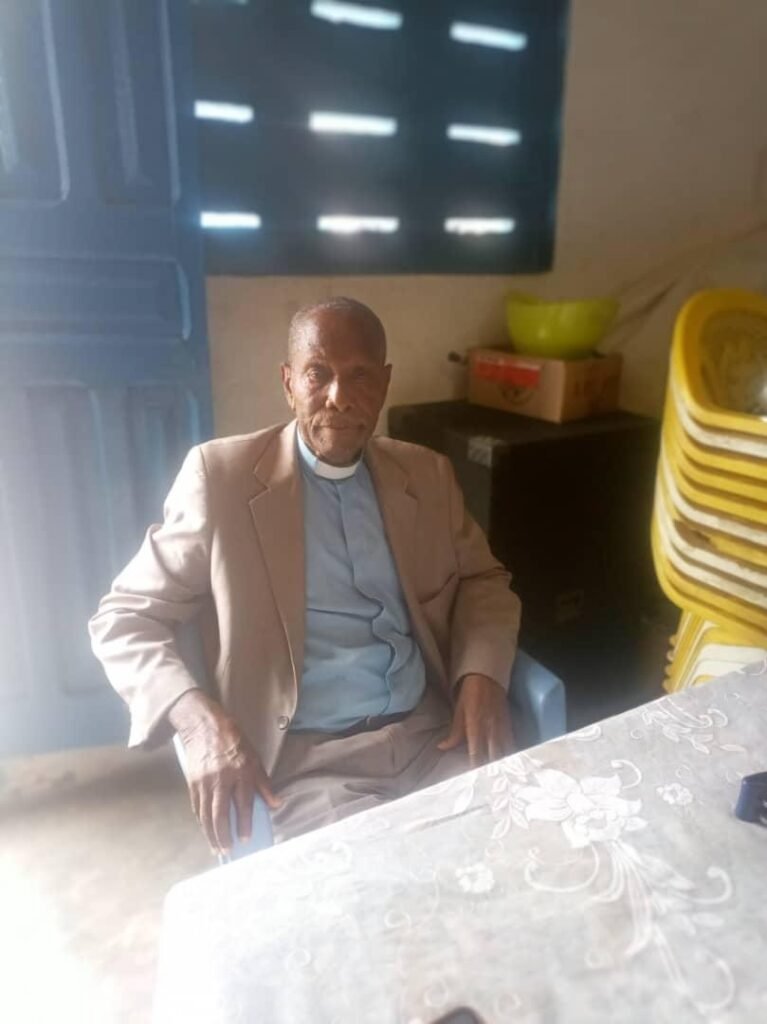
These efforts culminated with the formation of the Netball Association of Ghana in 1988, now known as the Netball Federation of Ghana.
In 1990, the association gained formal recognition from the National Sports Authorities, previously known as the National Sports Council (NSC), restoring netball’s status as an official sporting discipline.
This milestone marked the rebirth of organised netball in Ghana and cemented Rev. Niikoi’s place as founder of the national governing body.
Revival soon transitioned into consolidation. Over the years, Rev. Niikoi consistently lobbied educational and sports authorities to reintegrate netball into major school competitions.
His advocacy led to the sport’s reintroduction into the National Basic Schools Sports Festival, the Senior High and Technical Schools Sports Festival, the Colleges of Education games, and competitions under the Ghana University Sports Association (GUSA).
Today, netball is played across the entire educational structure in Ghana, from basic schools to public universities, a testament to his sustained and strategic efforts.
On the continental and global front, Ghana is a full member of World Netball and was a founding member of the Confederation of Africa Netball Associations (CANA), now Africa Netball.
In 2004, Ghana hosted the inaugural Africa Netball Cup of Nations in Accra and emerged champions after defeating Namibia in the final. The victory not only boosted Ghana’s sporting image but also validated years of groundwork.
In 2007, Rev. Niikoi was elected Director of Marketing and Media for CANA, serving a four-year term and contributing to the sport’s development across the continent.
In 2019, following governance reforms required by the International Olympic Committee to lift sanctions related to state interference in sports administration, national federations were mandated to adopt independent constitutions. Under this new framework, the Netball Federation of Ghana successfully drafted its constitution and conducted elections.
On June 19, 2019, Rev. Niikoi was elected the federation’s first President under the independent constitutional order which is symbolic and deserved recognition of decades of service.
Beyond netball administration, Rev. Niikoi also served two terms spanning eight years from March 2018 to March 2025 as an Executive Board Member of the Ghana Olympic Committee.
His presence on the board ensured that netball maintained visibility within Ghana’s broader Olympic movement.
A Bachelor of Arts graduate in Combined Honours (History and Law), Rev. Emmanuel D. Niikoi has trained numerous coaches and umpires nationwide, strengthening the sport’s technical foundation and ensuring sustainability.
His leadership style combines administrative discipline with grassroots engagement, making him both a strategist and a mentor.
From dormancy to dynamism, the resurgence of netball in Ghana bears his unmistakable imprint. Through advocacy, institution-building and capacity development, Rev. Niikoi has secured a lasting legacy.
Today, every netball match played in Ghana, whether at a basic school court or a university festival stands as living testimony to his vision and perseverance.
By Esinam Jemima Kuatsinu
Profile
Autism Awareness Care & Training: Pioneering autism care, inclusion in Ghana
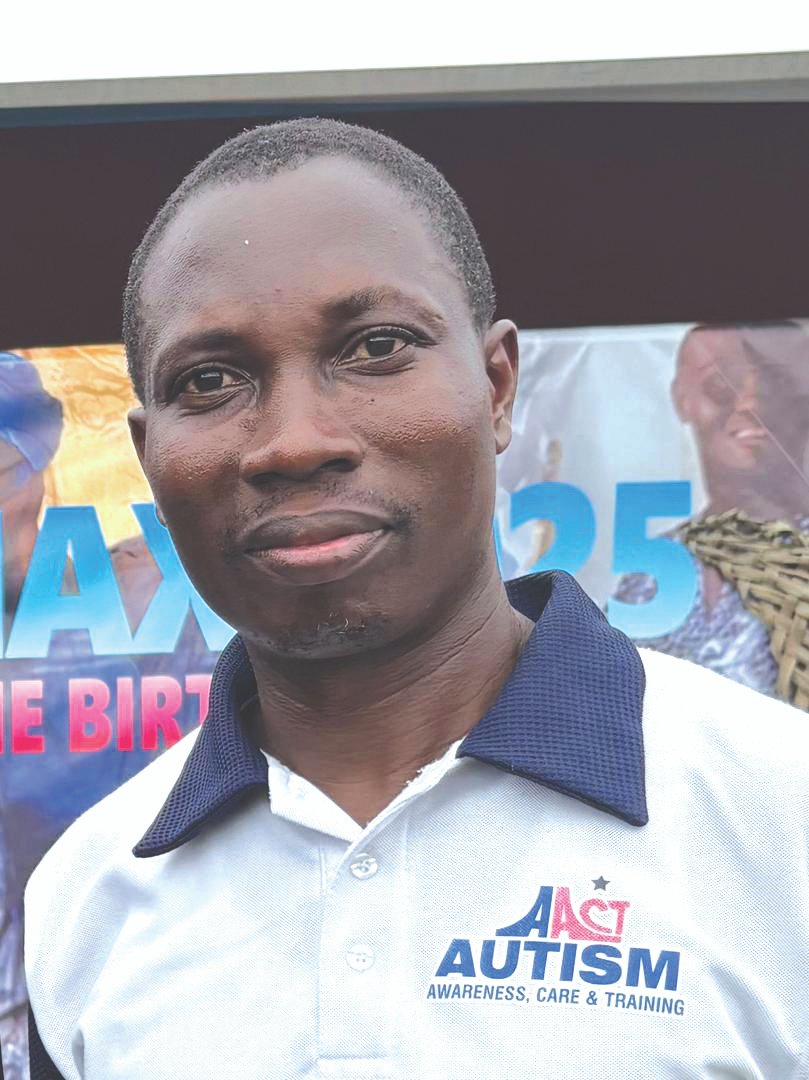
AUTISM Awareness Care and Training (AACT) is Ghana’s first autism-focused centre, playing a pioneering role in the care, education, and advocacy for children on the autism spectrum and their families.
Established in 1998, AACT began as a parent-support and training initiative at a time when autism was poorly understood in Ghana. Many families raising autistic children faced stigma, isolation, and limited access to information or professional assistance.
Over the years, the organisation has evolved into a full-fledged autism care and training centre, responding to the growing demand for specialised services and sustained nationwide awareness.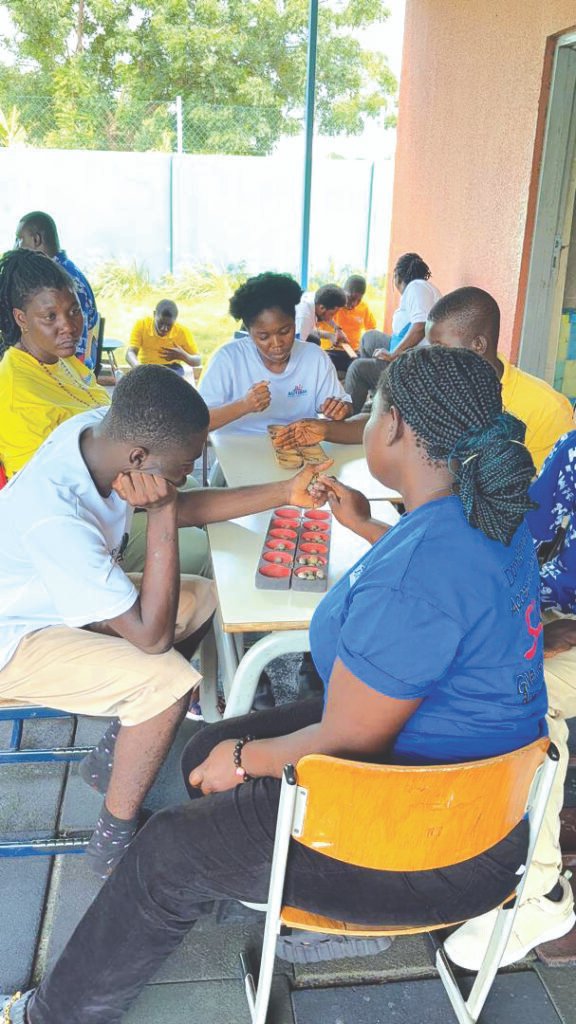
AACT is currently located in Haatso, Accra, where it operates a structured day programme serving about 25 learners daily. The centre provides a safe, inclusive, and supportive environment where children with autism are guided to develop essential life, social, and functional skills.
Programmes at the centre focus on independent living skills, vocational and pre-vocational training, functional academic skills, and therapeutic interventions. These activities are tailored to the individual needs of each learner, recognising that children on the autism spectrum learn and develop at different paces.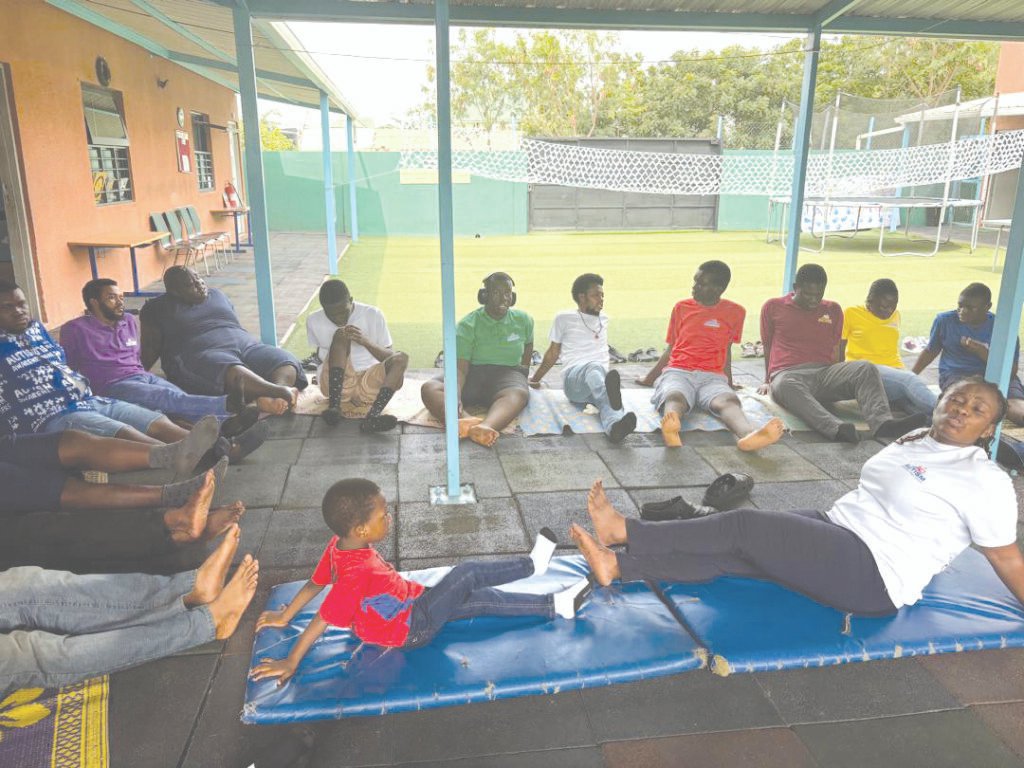
According to Abeiku Grant, Head of Programmes at AACT, the centre’s philosophy is centred on ability rather than limitation.
“Every autistic child is different,” he said. “Our work is to support them at their own pace and help them discover what they can do, not to focus on what they cannot do.”
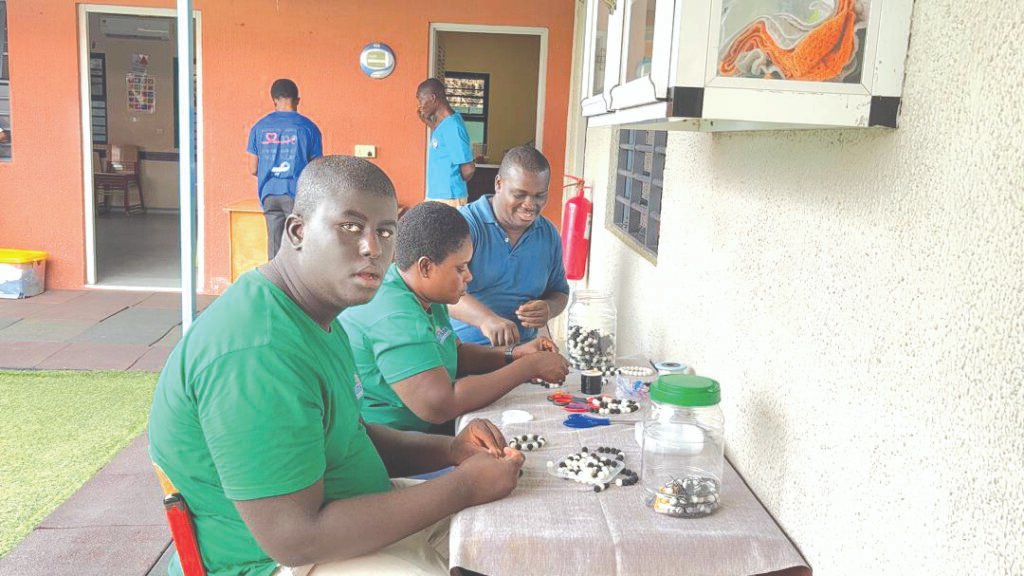
Beyond centre-based services, AACT places strong emphasis on autism awareness and advocacy, particularly within schools and communities. Many children with autism in Ghana continue to face rejection and exclusion due to stigma, misinformation, and the lack of trained personnel in educational institutions.
In 2025, AACT reached over 20 schools across the country, providing autism education to teachers, students, and school administrators.
The organisation also runs free teacher training programmes, equipping educators with practical knowledge and basic tools to support autistic learners in inclusive classroom settings.
“Many schools tell us they are not resourced or trained to handle autistic learners,” Mr Grant explained. “Instead of waiting for change, we decided to go to them and train teachers for free.”
AACT also engages learners directly, addressing widespread misconceptions about autism, including the false belief that autism is contagious or caused by bad parenting. These outreach programmes aim to build empathy among students and promote peer support for autistic learners in mainstream schools.
Another major challenge confronting families is limited access to autism services, especially outside Accra. With most autism centres concentrated in the capital, many families from other regions are forced to travel long distances or keep their children at home due to cost, stigma, or lack of support.
“Education is not meant only for typical children,” Mr Grant stressed. “Children with autism also have the right to education and care. No child should be hidden because of lack of understanding or opportunity.”
As part of its outreach work, AACT supports parents to overcome stigma and encourages social interaction for children with autism, believing that community engagement is essential for development and confidence building.
In December 2025, the centre received what it described as its largest donation of the year, raised by children from the Unmasked Mentoring initiative. According to the organisation, the donation was particularly significant as it demonstrated empathy and social responsibility among young people.
As a non-governmental, non-profit organisation, AACT depends largely on donations, partnerships, and goodwill to sustain and expand its work. Current needs include a minibus for community-based social activities, expansion of its facility to accommodate more learners, sponsorship support for children from financially challenged families, and funding to scale autism awareness programmes nationwide.
Looking ahead, AACT envisions a Ghanaian society that is inclusive, informed, and supportive of persons with autism.
“Our goal is a Ghana where children with autism are accepted and supported,” Mr Grant said. “Every child has potential. All they need is understanding, opportunity, and care.”
By Esinam Jemima Kuatsinu


